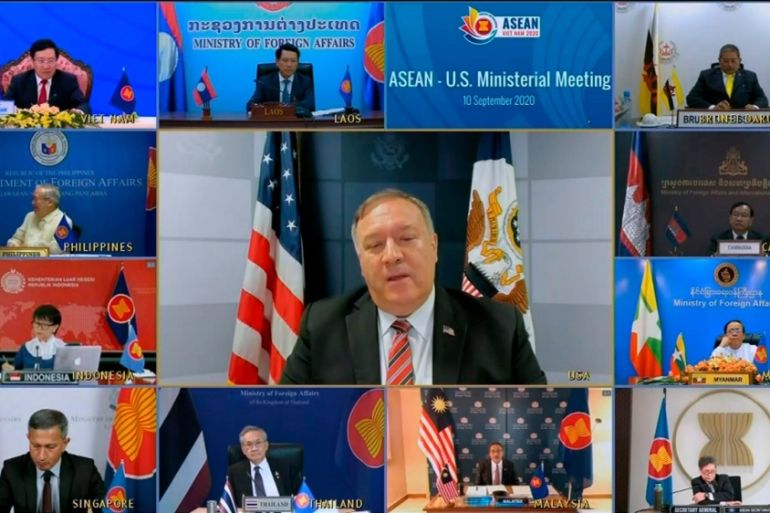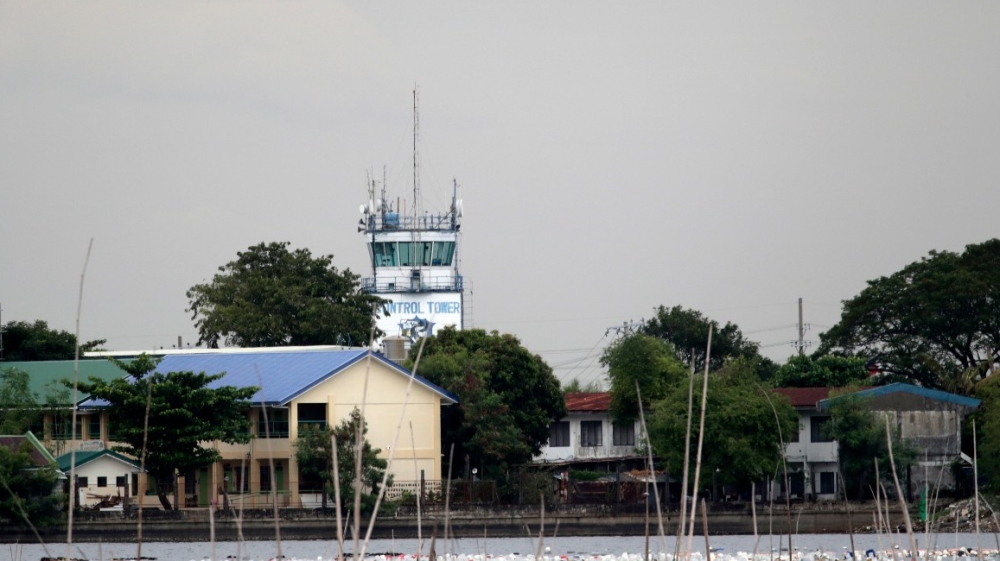Pompeo urges ASEAN to ditch Chinese firms in South China Sea row
Virtual regional summit overshadowed by escalating US-China tensions as well as the coronavirus pandemic.

US Secretary of State Mike Pompeo has urged top diplomats from Southeast Asia to cut ties with Chinese companies helping build islands in the South China Sea, weeks after Washington blacklisted two dozen firms working in the disputed waters.
“Don’t just speak up, but act,” Pompeo told the 10 foreign ministers of the Association of Southeast Asian Nations (ASEAN) during an online summit on Thursday.
The top US diplomat said regional governments should “reconsider business dealings with the very state-owned companies that bully ASEAN coastal states in the South China Sea”.
He added: “Don’t let the Chinese Communist party walk over us and our people.”
This year’s summit is overshadowed by the surging United States-China rivalry over a range of issues – from trade to the coronavirus pandemic.
Tensions are also simmering over the South China Sea, with the US last month sanctioning 24 Chinese state-owned companies it said had helped Beijing’s military buildup in the resource-rich waterway.
|
|
Last week, Beijing launched ballistic missiles in the South China Sea as part of live-fire exercises.
Chinese Foreign Minister Wang Yi has laid blame on the US for tensions, claiming Washington was “becoming the biggest driver” of the militarisation.
Al Jazeera’s Scott Heidler, who has frequently covered the annual ASEAN summits, said that while the 10 countries of the bloc this year looked to work together to help restart their coronavirus-hit economies, China and the US “continue to ratchet up their rhetoric and posturing in the region”.
“Both [China and the US] are moving military assets into the areas of disputed territories,” he said, adding the surging tension also involved “diplomatic action, sanctions and threats”.
China claims the vast majority of the South China Sea, invoking its so-called nine-dash line to justify what it says are historic rights to the key trade waterway.
In 2016, however, an international tribunal at The Hague rejected China’s claim saying it was unlawful under the 1982 UN Convention on the Law of the Sea.
But since the ruling, Beijing has ramped up the building of several artificial islands capable of accommodating naval vessels and aircraft.
Vietnam, the Philippines, Malaysia, Brunei and Taiwan all contest parts of China’s declared territory in the sea.

Vietnam, which is chairing the virtual ASEAN gathering, expressed “serious concern” about the recent military build-up of the sea.
“This has eroded trust and confidence, increased tension and undermined peace, security and rule of law in the region,” said Foreign Minister Pham Binh Minh.
Meanwhile, the Philippines already said last week it would not follow the US lead because it needed Chinese investment, even as a fresh dispute between Manila and Beijing over Scarborough Shoal – one of the region’s richest fishing grounds – hangs over the talks.
One Chinese firm being blacklisted by the US, the Communications Construction Company, is involved with the expansion of a Philippine airport at Sangley, a former US naval facility just outside of the capital, Manila.